Contents
Book One
Book Two
Foreword
This reissue of The Faith and Practice of al-Ghazl is to be welcomed, because al-Ghazl is one of the Muslim writers best able to help Westerners towards a positive appreciation of Islam; and that is something very necessary at the present time. The first of the two short works translated here, represented in the books title as his Faith, is a kind of spiritual autobiography, and it has also been known as his Confessions. The second work describes his Practice of the Islamic religion, as he and some followers carried it out in the semi-monastic institution he established in Ts in eastern Iran.
No other work on Islamic religion has the same appeal to Westerners as the autobiography, and this has led to far more attention being paid to al-Ghazl, both by Western scholars and by modern Muslims, than to any other Muslim theologian. This trend is now being corrected, and it is becoming apparent that there are other theologians of comparable stature. This means that statements about al-Ghazls greatness in the introduction to the first edition, which is here reproduced, should be somewhat qualified.
In this edition the translation has been improved at one or two points. Some of these changes were already made in reprints of the original edition.
W. Montgomery Watt
1994
Introduction
A b  mid Mu
mid Mu ammad al-Ghazl was born at Ts in Persia in 450 A.H. (1058 A.D.) His father died when he was quite young, but the guardian saw to it that this lad o pairts and his brother received a good education. After the young Ghazl had spent some years of study under the greatest theologian of the age, al-Juwayn, Imm al-
ammad al-Ghazl was born at Ts in Persia in 450 A.H. (1058 A.D.) His father died when he was quite young, but the guardian saw to it that this lad o pairts and his brother received a good education. After the young Ghazl had spent some years of study under the greatest theologian of the age, al-Juwayn, Imm al- aramayn, his outstanding intellectual gifts were noted by Ni
aramayn, his outstanding intellectual gifts were noted by Ni m al-Mulk, the all-powerful vizier of the Turkish sultan who ruled the Abbasid caliphate of Baghdad, and he appointed him professor at the university he had founded in the capital. Thus at the age of thirty-three he had attained to one of the most distinguished positions in the academic world of his day.
m al-Mulk, the all-powerful vizier of the Turkish sultan who ruled the Abbasid caliphate of Baghdad, and he appointed him professor at the university he had founded in the capital. Thus at the age of thirty-three he had attained to one of the most distinguished positions in the academic world of his day.
Four years later, however, he had to meet a crisis; it had physical symptoms but it was primarily religious. He came to feel that the one thing that mattered was avoidance of Hell and attainment of Paradise, and he saw that his present way of life was too worldly to have any hope of eternal reward. After a severe inner struggle he left Baghdad to take up the life of a wandering ascetic. Though later he returned to the task of teaching, the change that occurred in him at this crisis was permanent. He was now a religious man, not just a worldly teacher of religious sciences. He died at Ts in 505 (1111).
The first of the books here translated, Deliverance from Error (literally, What delivers from error - al-Munqidh min a -
- all), is the source for much of what we know about al-Ghazls life. It is autobiographical, yet not exactly an autobiography. It presents us with an intellectual analysis of his spiritual growth, and also offers arguments in defence of the view that there is a form of human apprehension higher than rational apprehension, namely, that of the prophet when God reveals truths to him. Moreover close study shows that al-Ghazl does not always observe strict chronology, but has schematized his description of his intellectual development. Al-Ghazl introduces his discussions in a manner reminiscent of Descartes. The bonds of mere authority ceased to hold him, as they ceased to hold the father of modern European philosophy. Looking for necessary truths al-Ghazl came, like Descartes, to doubt the infallibility of sense-perception, and to rest his philosophy rather on principles which are intuitively certain. With this in mind al-Ghazl divided the various seekers after truth into the four distinct groups of Theologians, Philosophers, Authoritarians and Mystics.
all), is the source for much of what we know about al-Ghazls life. It is autobiographical, yet not exactly an autobiography. It presents us with an intellectual analysis of his spiritual growth, and also offers arguments in defence of the view that there is a form of human apprehension higher than rational apprehension, namely, that of the prophet when God reveals truths to him. Moreover close study shows that al-Ghazl does not always observe strict chronology, but has schematized his description of his intellectual development. Al-Ghazl introduces his discussions in a manner reminiscent of Descartes. The bonds of mere authority ceased to hold him, as they ceased to hold the father of modern European philosophy. Looking for necessary truths al-Ghazl came, like Descartes, to doubt the infallibility of sense-perception, and to rest his philosophy rather on principles which are intuitively certain. With this in mind al-Ghazl divided the various seekers after truth into the four distinct groups of Theologians, Philosophers, Authoritarians and Mystics.
(1) Scholastic theology had already achieved a fair degree of elaboration in the defence of Islamic orthodoxy, as a perusal of al-Irshd by al-Juwayn, (translated into French), will show. Al-Ghazl had been brought up in this tradition, and did not cease to be a theologian when he became a mystic. His criticism of the theologians is mild. He regards contemporary theology as successful in attaining its aims, but inadequate to meet his own special needs because it did not go far enough in the elucidation of its assumptions. There was no radical change in his theological views when he became a mystic, only a change in his interests, and some of his earlier works in the field of dogmatics are quoted with approval in al-Munqidh.
(2) The Philosophers with whom al-Ghazl was chiefly concerned were those he calls theistic, above all, al-Frb and Ibn Sn (Avicenna). Their philosophy was a form of Neoplatonism, sufficiently adapted to Islamic monotheism for them to claim to be Muslims. Though the part they played in stimulating the medieval Christian scholastics is acknowledged, the contribution of these men to the intellectual progress of mankind as a whole has not yet been fully appreciated. To the great body of Muslims, however, some of their positions were unacceptable, because they tended to contradict principles essential to the daily life of believing Muslims. The achievement of al-Ghazl was to master their technique of thinking - mainly Aristotelian logic - and then, making use of that, to refashion the basis of Islamic theology, to incorporate as much of the Neoplatonists teaching as was compatible with Islam, and to expose the logical weakness of the rest of their philosophy. The fusion of Greek philosophical techniques with Islamic dogma which had been partly accomplished by al-Ashar (d. 324/935) was thus in essence completed, though the working-out was left to al-Ghazls successors. Undoubtedly al-Ghazl learnt much from these Neoplatonists, but the allegations that he finally adopted some of their fundamental principles, which he had earlier criticized, are to be denied, since they are based on works falsely attributed to al-Ghazl.
(3) Those whom al-Ghazl calls the party of talm or authoritative instruction (also known as Ismlyah and B inyah) held that truth is to be attained not by reason but by accepting the pronouncements of the infallible Imm. The doctrine had an important political reference since it was the official ideology of a rival state, the F
inyah) held that truth is to be attained not by reason but by accepting the pronouncements of the infallible Imm. The doctrine had an important political reference since it was the official ideology of a rival state, the F imid caliphate with centre in Cairo, and thus anyone who held it was suspect of being, at the least, a fellow-traveller.
imid caliphate with centre in Cairo, and thus anyone who held it was suspect of being, at the least, a fellow-traveller.
(4) There had been an ascetic element in Islam from the time of Mu ammad himself, and this could easily be combined with orthodoxy.
ammad himself, and this could easily be combined with orthodoxy.  ufism, however, was usually something more than asceticism, and the strictly mystical elements which it contained often led to heterodox theology. From the
ufism, however, was usually something more than asceticism, and the strictly mystical elements which it contained often led to heterodox theology. From the 


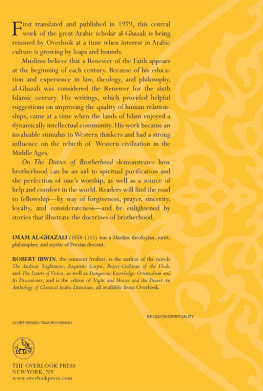
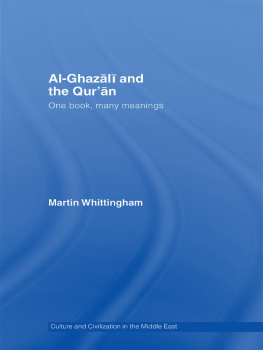
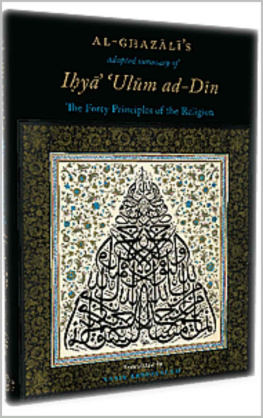
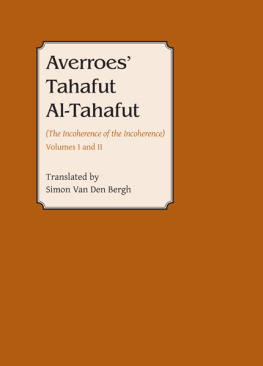
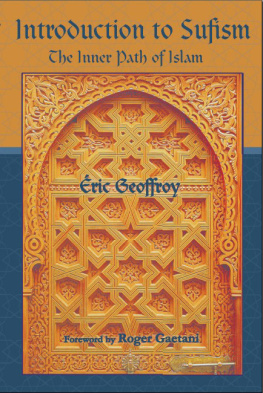
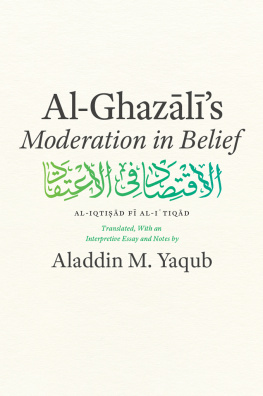
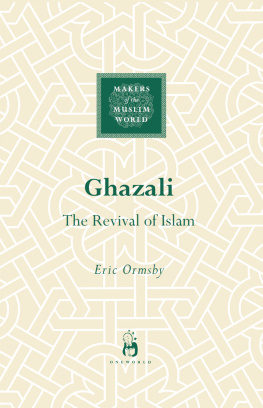

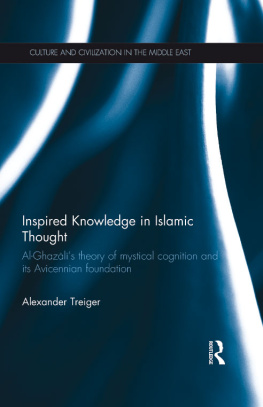
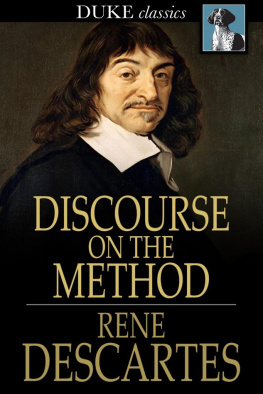

 mid Mu
mid Mu ammad al-Ghazl was born at Ts in Persia in 450 A.H. (1058 A.D.) His father died when he was quite young, but the guardian saw to it that this lad o pairts and his brother received a good education. After the young Ghazl had spent some years of study under the greatest theologian of the age, al-Juwayn, Imm al-
ammad al-Ghazl was born at Ts in Persia in 450 A.H. (1058 A.D.) His father died when he was quite young, but the guardian saw to it that this lad o pairts and his brother received a good education. After the young Ghazl had spent some years of study under the greatest theologian of the age, al-Juwayn, Imm al- m al-Mulk, the all-powerful vizier of the Turkish sultan who ruled the Abbasid caliphate of Baghdad, and he appointed him professor at the university he had founded in the capital. Thus at the age of thirty-three he had attained to one of the most distinguished positions in the academic world of his day.
m al-Mulk, the all-powerful vizier of the Turkish sultan who ruled the Abbasid caliphate of Baghdad, and he appointed him professor at the university he had founded in the capital. Thus at the age of thirty-three he had attained to one of the most distinguished positions in the academic world of his day. -
- all), is the source for much of what we know about al-Ghazls life. It is autobiographical, yet not exactly an autobiography. It presents us with an intellectual analysis of his spiritual growth, and also offers arguments in defence of the view that there is a form of human apprehension higher than rational apprehension, namely, that of the prophet when God reveals truths to him. Moreover close study shows that al-Ghazl does not always observe strict chronology, but has schematized his description of his intellectual development. Al-Ghazl introduces his discussions in a manner reminiscent of Descartes. The bonds of mere authority ceased to hold him, as they ceased to hold the father of modern European philosophy. Looking for necessary truths al-Ghazl came, like Descartes, to doubt the infallibility of sense-perception, and to rest his philosophy rather on principles which are intuitively certain. With this in mind al-Ghazl divided the various seekers after truth into the four distinct groups of Theologians, Philosophers, Authoritarians and Mystics.
all), is the source for much of what we know about al-Ghazls life. It is autobiographical, yet not exactly an autobiography. It presents us with an intellectual analysis of his spiritual growth, and also offers arguments in defence of the view that there is a form of human apprehension higher than rational apprehension, namely, that of the prophet when God reveals truths to him. Moreover close study shows that al-Ghazl does not always observe strict chronology, but has schematized his description of his intellectual development. Al-Ghazl introduces his discussions in a manner reminiscent of Descartes. The bonds of mere authority ceased to hold him, as they ceased to hold the father of modern European philosophy. Looking for necessary truths al-Ghazl came, like Descartes, to doubt the infallibility of sense-perception, and to rest his philosophy rather on principles which are intuitively certain. With this in mind al-Ghazl divided the various seekers after truth into the four distinct groups of Theologians, Philosophers, Authoritarians and Mystics. inyah) held that truth is to be attained not by reason but by accepting the pronouncements of the infallible Imm. The doctrine had an important political reference since it was the official ideology of a rival state, the F
inyah) held that truth is to be attained not by reason but by accepting the pronouncements of the infallible Imm. The doctrine had an important political reference since it was the official ideology of a rival state, the F ufism, however, was usually something more than asceticism, and the strictly mystical elements which it contained often led to heterodox theology. From the
ufism, however, was usually something more than asceticism, and the strictly mystical elements which it contained often led to heterodox theology. From the